Jingting Mountain: Your Ultimate Destination for Adventure and Serenity
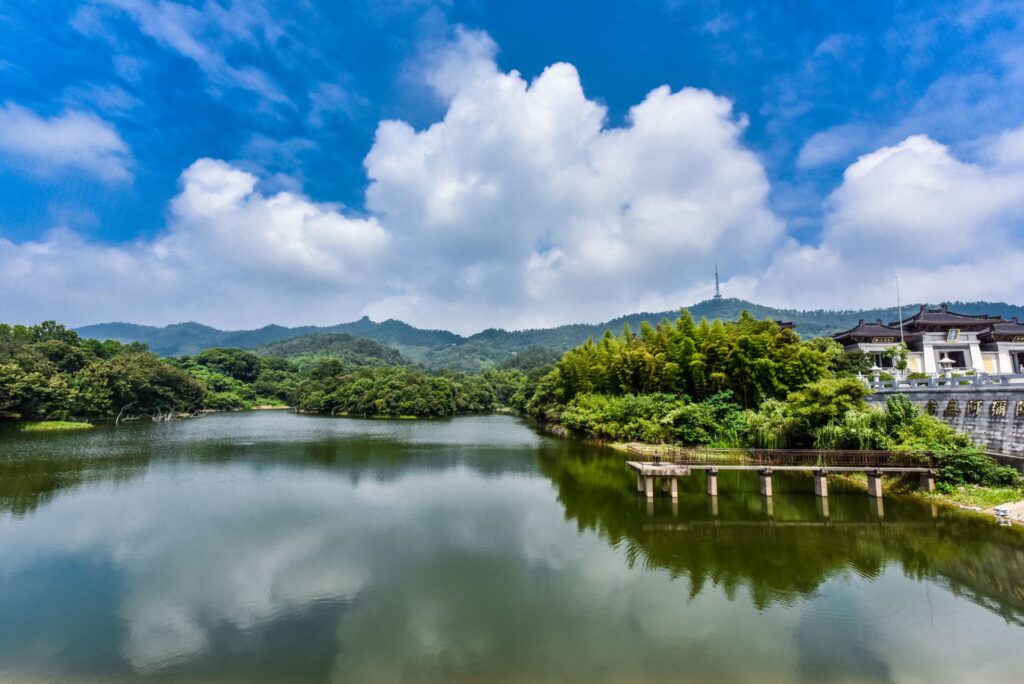
An Essential Guide to Visiting Jingting Mountain
Nestled just five kilometers north of Xuancheng City, Jingting Mountain (敬亭山) stands as a serene testament to China’s poetic heritage and natural beauty. This enchanting destination, with its peak rising to 317 meters above sea level, has long inspired renowned poets, notably the illustrious Li Bai, who famously declared, “I never get tired of looking at Jingting Mountain.” The mountain isn’t just a feast for the eyes; it’s a place where the air is filled with the fresh scents of tea gardens and bamboo forests, inviting visitors to embark on a journey that intertwines nature and culture.
As you approach Jingting Mountain, the journey itself is rich with scenic allure. The East Gate Square, adorned with memorial archways and a statue of Li Bai, marks your gateway to adventure. From here, the path leads you past Jingting Lake and the iconic twin towers of Guangjiao Temple, remnants of a bygone era that continue to captivate the imagination. Each step along the well-marked trails reveals hidden gems—ancient structures, serene springs, and verdant landscapes—making the hike as rewarding as the breathtaking views from the summit.
Whether you seek solitude in the embrace of nature or a chance to walk in the footsteps of literary giants, Jingting Mountain offers a unique blend of tranquility and inspiration. A visit here promises not only panoramic vistas of Xuancheng and its lush farmland but also an opportunity to reflect on the beauty of life that so profoundly moved Li Bai and countless others. So lace up your hiking boots, pack your camera, and prepare for an unforgettable experience that captures the essence of China’s poetic soul.
In This Guide
- An Essential Guide to Visiting Jingting Mountain
- The Rich History and Legends of Jingting Mountain
- Main Highlights: What You Absolutely Can’t Miss
- Planning Your Visit: A Practical Guide
- Tickets: Prices, Booking, and Tips
- How to Get There: A Complete Transportation Guide
- Local Cuisine and Accommodation Nearby
- Frequently Asked Questions
- Final Thoughts on Your Trip
The Rich History and Legends of Jingting Mountain
Nestled just five kilometers north of Xuancheng City, Jingting Mountain (敬亭山) stands as a testament to the rich tapestry of Chinese culture and history. With its peak rising majestically to 317 meters, this mountain has served as a muse for poets, artists, and travelers for centuries. Among its most famous admirers was the legendary poet Li Bai, who immortalized the mountain in his verse. His line, “I never get tired of looking at Jingting Mountain,” echoes through the ages, inviting visitors to experience its beauty for themselves.
The mountain’s allure is not just in its scenic views but also in the legends that surround it. One such tale is the poignant love story of Princess Yuzhen, who is said to have fallen in love with Li Bai. Their ill-fated romance adds a layer of enchantment to the mountain, drawing visitors eager to explore the sites associated with their narrative, including the statue of the princess that stands proudly along the climbing path.
Jingting Mountain is also steeped in history, with evidence of human presence dating back to the Northern Song Dynasty. The twin brick towers of Guangjiao Temple, built in 1096 AD, remain as the only vestiges of a once-great temple complex. Though the main structure has long since vanished, the towers serve as iconic landmarks, marking the way for those who venture up the mountain. The Zhaoting Archway, erected during the Ming Dynasty and later reconstructed in the Qing Dynasty, is another historical highlight, hinting at the mountain’s original name, Zhaoting Mountain.
As you ascend the mountain, you will encounter lush bamboo forests and sprawling tea gardens, each step steeped in the poetic ambiance that has inspired countless literary works. The paths are lined with markers of history, from the ancient inscriptions to the memorials dedicated to the poets who once sought solace here. The scenic routes offer breathtaking views of the surrounding landscapes, where the mountains meet the sky, and the rivers weave through the valleys.
Jingting Mountain’s historical significance extends beyond its natural beauty and poetic connections. It has been a gathering place for scholars and literati throughout the ages, fostering discussions on philosophy, art, and nature. The mountain’s tranquil environment provides a perfect backdrop for reflection and creativity, making it a cherished retreat for both locals and visitors alike.
Today, Jingting Mountain continues to draw those inspired by its rich history and the legends that linger in the air. Whether you are climbing to the Taibai Duzuo Tower or sipping Jingting Green Snow Tea at the Guzhaoting Tea House, the spirit of the past is palpable in every corner of this enchanting place. With each visit, one discovers not just a mountain but a living canvas of history, poetry, and love that resonates deeply within the heart of Jiangnan.
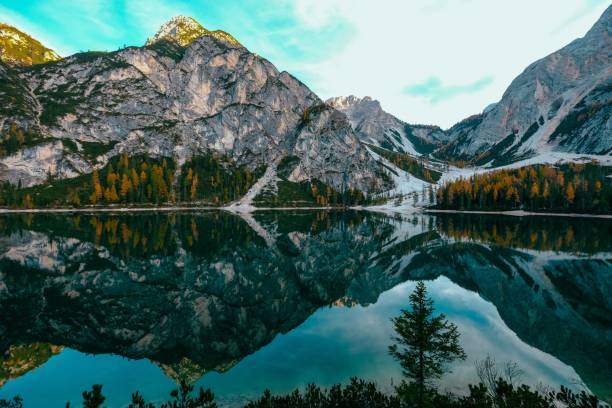
Jingting Mountain.
Main Highlights: What You Absolutely Can’t Miss
Jingting Mountain, a poetic gem nestled just 5 kilometers north of Xuancheng City, beckons travelers with its stunning landscapes and rich literary history. Here are the main highlights that you absolutely can’t miss when exploring this enchanting destination.
1. Li Bai’s Inspiration
As you ascend, you’ll walk in the footsteps of renowned poet Li Bai, who famously expressed his affection for Jingting Mountain in his verses. His poem, “I never get tired of looking at Jingting Mountain,” captures the essence of this serene environment. Many visitors seek to connect with the spirit of the poet, making it a must-see for literature lovers.
2. Scenic Hiking Trails
The main climbing path starts from Jingting Square, where you’ll find signposts to guide your adventure. The hike to Taibai Duzuo Tower takes about 30 to 50 minutes and offers a delightful experience through lush bamboo forests and ancient stone archways. Don’t miss the Zhaoting Archway, a historic structure built during the Ming Dynasty and later renovated in the Qing Dynasty.
3. Breathtaking Views
At the summit, you’ll be rewarded with panoramic views of Xuancheng and the surrounding countryside. The Taibai Duzuo Tower is a perfect vantage point for capturing the magical morning mist or the vibrant colors of sunset. If you’re feeling adventurous, continue to the main peak for even more stunning vistas.
4. Cultural Landmarks
Along your journey, be sure to visit the Guangjiao Temple twin towers, remnants of an ancient structure dating back to the Northern Song Dynasty. The slightly tilted brick towers serve as iconic landmarks and are a great photo opportunity.
5. Natural Wonders
The mountain is not only about the views. The delightful Huanggu Spring and the statue of Princess Yuzhen offer a glimpse into local legends and folklore. This area is steeped in romantic tales, particularly the love story between Princess Yuzhen and Li Bai, making it a perfect spot for a quiet reflection.
6. Tea Culture
After your hike, unwind at the Guzhaoting Tea House, where you can savor a pot of Jingting Green Snow Tea. Surrounded by bamboo forests, this open-air teahouse provides a peaceful ambiance to relax and absorb the beauty of your surroundings.
7. Seasonal Serenity
For a more tranquil experience, visit during the winter months when the mountain is blanketed in snow. The serene atmosphere, combined with the falling snow from bamboo leaves, creates a unique and peaceful environment that is perfect for introspection and quiet enjoyment.
8. Accessibility
Reaching Jingting Mountain is easy, with buses stopping at the East Gate Square. Once there, enjoy the scenic walkways and prepare for an easy climb that offers both physical activity and cultural enrichment.
In summary, Jingting Mountain is a treasure trove of natural beauty, poetic inspiration, and cultural heritage. Whether you’re hiking its trails, absorbing the views, or sipping tea amidst bamboo groves, your visit here promises to be an unforgettable experience that resonates long after you leave.
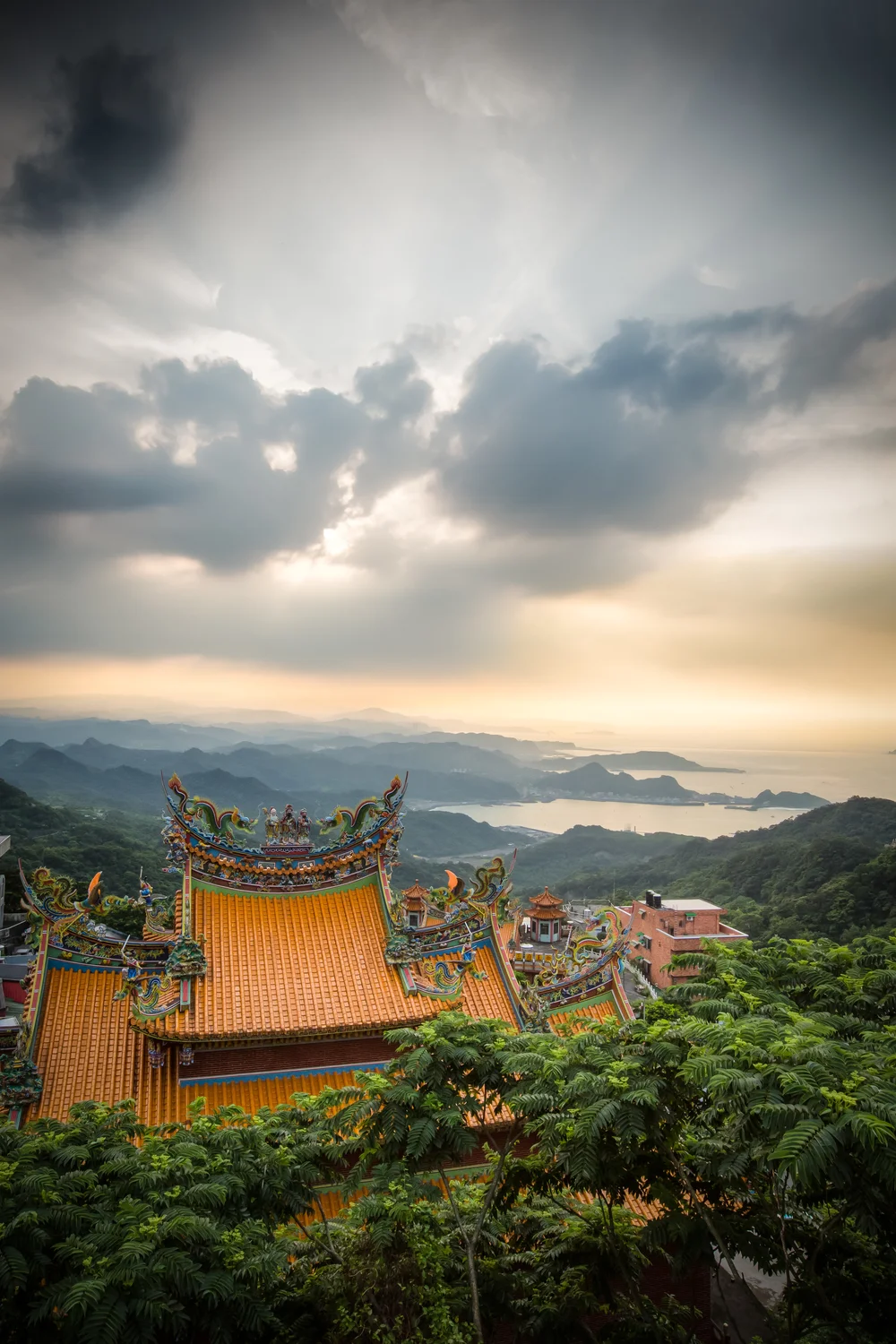
Jingting Mountain.
Planning Your Visit: A Practical Guide
Planning Your Visit: A Practical Guide to Jingting Mountain
Nestled just 5 kilometers north of Xuancheng City, Jingting Mountain beckons with its rich history, stunning landscapes, and poetic allure. Whether you’re a hiker, a poetry enthusiast, or simply looking to soak in the scenic beauty, this mountain has something for everyone. Here’s everything you need to know to make the most of your visit.
Getting There
Transportation Options:
– By Train: The nearest high-speed rail station is Xuancheng Station, which connects easily to major cities like Shanghai, Hangzhou, and Nanjing. From the station, taxis and local buses are readily available to take you to Jingting Mountain.
– By Bus: Look for bus routes heading toward Jingting Mountain East Gate Square, which is conveniently located near the mountain entrance.
– By Car: If you’re renting a car, the drive from Xuancheng to Jingting Mountain is straightforward, with plenty of signage along the way.
Entrance and Fees
- Entry Fee: Approximately 7 JPY (or the equivalent in your currency) grants you access to this beautiful area.
- Opening Hours: Jingting Mountain is open year-round, but the best visiting hours are early morning or late afternoon to avoid crowds and enjoy cooler temperatures.
What to Expect
Scenic Views and Hiking:
– The main peak of Jingting Mountain stands at 317 meters, offering panoramic views of the surrounding landscape, including lush tea gardens and bamboo forests. Hiking to the summit typically takes between 30 to 50 minutes, depending on your pace.
– Along the way, you’ll encounter significant landmarks such as the Zhaoting Archway and Taibai Duzuo Tower, both rich in history.
Cultural Highlights:
– Be sure to stop by the Li Bai Statue and the Jingting Lake, which are located near the East Gate Square, where you can also view the twin brick towers of Guangjiao Temple.
– Immerse yourself in the romantic poetry of Li Bai by visiting the sites where he found inspiration.
Rest Stops:
– After your hike, relax at the Guzhaoting Tea House located near the square. Treat yourself to a pot of Jingting Green Snow Tea while enjoying the tranquil bamboo surroundings.
Tips for Your Visit
- Best Time to Visit: To avoid large crowds, consider visiting during weekdays or in the winter months when the mountain is quiet and serene, especially after a snowfall.
- Clothing: Wear comfortable hiking shoes and dress in layers, as temperatures can vary significantly from morning to afternoon.
- Crowd Management: If you’d like a more solitary experience, aim for early morning hikes when the trails are less populated.
- Photography Tips: Capture the magnificent views at the Taibai Duzuo Tower and the Princess Yuzhen Statue, particularly during sunrise or sunset for stunning lighting.
Local Cuisine
While exploring the area, don’t miss the chance to indulge in local Hui cuisine:
– Stinky Mandarin Fish: A must-try for adventurous foodies!
– Mao Tofu: This unique dish is an acquired taste, famous for its distinct aroma.
– Shuiyang Three Treasures: A delightful trio of duck delicacies that are savory and satisfying.
Final Thoughts
Jingting Mountain is not just a destination; it’s an experience that marries nature, culture, and history. Take your time to explore, soak in the views, and perhaps even find your own poetic inspiration amidst the tranquil surroundings. Whether you’re hiking up its trails or sipping tea at the foot of the mountain, Jingting offers a slice of China that’s both enchanting and unforgettable. Happy travels!
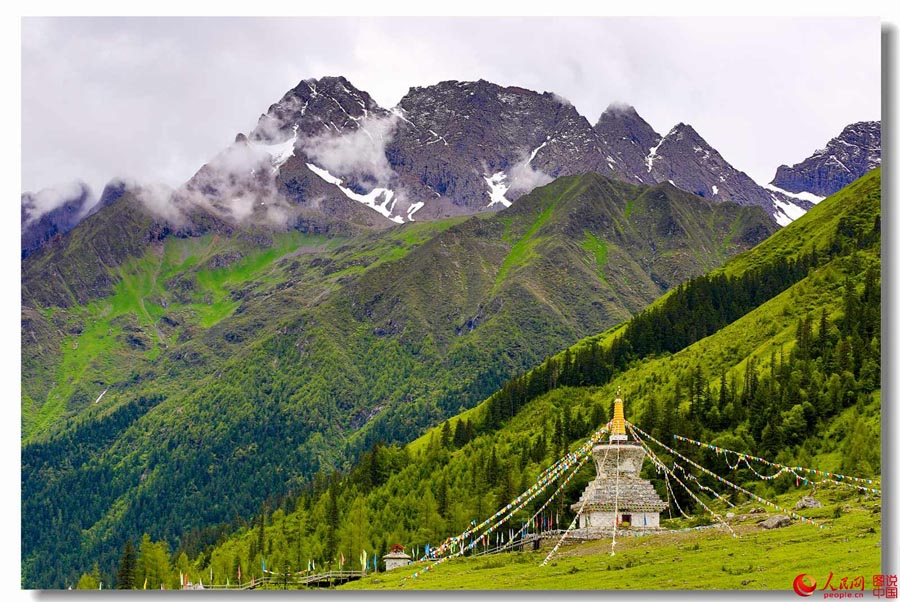
Jingting Mountain.
Tickets: Prices, Booking, and Tips
Visiting Jingting Mountain in Xuancheng promises a delightful experience filled with poetic history and stunning natural beauty. Here’s everything you need to know about ticket prices, booking, and tips to enhance your journey.
Ticket Prices
Admission to Jingting Mountain is surprisingly affordable, with tickets priced at approximately JPY 7 (around RMB 4 or USD 0.60). This low entry fee allows you to explore the mountain’s trails, lush tea gardens, and breathtaking views without breaking the bank.
Booking Tickets
You can purchase tickets on-site at the East Gate Square near the mountain’s entrance. There’s no need for advance booking, making it convenient for spontaneous travelers. However, if you prefer to plan ahead, you might consider checking local travel websites or apps for any special promotions or guided tour packages that include the mountain in their itinerary.
Getting There
Jingting Mountain is located just 5 kilometers north of Xuancheng City, making it easily accessible. The best way to reach the mountain is by taking a local bus, which stops near the East Gate Square on Zhaoting North Road. Alternatively, taxis are available and can provide a quicker option if you’re pressed for time.
Tips for an Enjoyable Visit
-
Timing Your Visit: Weekdays are generally less crowded than weekends, so if you prefer a quieter experience, plan your visit during the week. If you’re keen on enjoying the serene beauty of the mountain, consider visiting in winter after a snowfall when the landscape transforms into a tranquil wonderland.
-
Hiking Experience: The hike to the peak takes about 30 to 50 minutes depending on your pace. Be sure to wear comfortable shoes and stay hydrated, especially if you plan to explore the various trails.
-
Scenic Stops: As you make your way to the top, take the time to enjoy the scenic views and historical landmarks, such as the ancient Zhaoting Archway and the statue of the famous poet Li Bai. The paths are also lined with beautiful bamboo forests and tea gardens, perfect for a few memorable photos.
-
Refreshments: After your hike, treat yourself to some local delicacies at the Guzhaoting Tea House. Enjoy a pot of Jingting Green Snow tea while surrounded by the serene ambiance of the bamboo forest.
-
Photography Opportunities: Don’t miss out on capturing the breathtaking panoramic views from the summit. Early morning or late afternoon light provides magical scenery for photography enthusiasts.
-
Cultural Insights: Familiarize yourself with the legend of Princess Yuzhen and Li Bai before your visit. Understanding the cultural background enhances the experience and gives you a deeper appreciation of the sites you’ll see.
Jingting Mountain offers an enriching experience that blends natural beauty with rich cultural history. With affordable ticket prices and convenient access, it’s a destination not to be missed on your journey through southern Anhui!
How to Get There: A Complete Transportation Guide
Reaching Jingting Mountain is a delightful journey that sets the tone for your poetic adventure in southern Anhui. Nestled just 5 kilometers north of Xuancheng City, this charming destination is accessible through various modes of transportation, making it easy for international travelers to explore its scenic beauty and historical significance.
By Air
To begin your journey, the nearest major airports are Hefei Luogang Airport (HFE) and Huangshan Tunxi International Airport (TXN). From either airport, you can catch a high-speed train to Xuancheng Station, which is the most convenient option for onward travel to Jingting Mountain.
- Hefei Luogang Airport to Xuancheng Station: Approximately 1.5 hours via high-speed train.
- Huangshan Airport to Xuancheng Station: About 2 hours by high-speed train.
By Train
The Xuancheng Station is well-connected by high-speed rail services from major cities:
– Shanghai: 2 hours
– Hangzhou: 1.5 hours
– Nanjing: 1 hour
Once you arrive at Xuancheng Station, you can take a taxi or bus to reach Jingting Mountain.
By Bus
If you are already in a nearby city, bus services run frequently to Xuancheng. Upon arrival at the Xuancheng Bus Station, local buses and taxis can take you to the mountain area.
Local Transportation
For those who prefer flexibility, renting a car is a great option to explore the scenic routes surrounding Xuancheng:
– Car Rentals: Available at the train station and airport with rates starting from around 200 RMB per day.
Getting to Jingting Mountain
From the center of Xuancheng City, you can take:
– Bus: Line 5 runs directly to the Jingting Mountain East Gate Square. This stop is conveniently located near the mountain’s starting point.
– Taxi: A quick and easy option, taking about 10-15 minutes depending on traffic.
Once you arrive at the East Gate Square, take a moment to admire the two memorial archways and the statue of the famous poet Li Bai before beginning your ascent.
Climbing to the Peak
The official climbing path starts about 2 kilometers from the East Gate Square. You’ll enjoy a picturesque walk that includes views of Jingting Lake and the historic Guangjiao Temple towers. As you make your way up, keep an eye out for signposts that guide you through the various scenic spots along the trail.
Pro Tips for Your Visit
- Best Time to Visit: Weekdays are less crowded, allowing for a more serene experience. If you seek a unique atmosphere, winter visits after snowfall are enchanting.
- Dining Options: Consider dining at the Guzhaoting Tea House located in Guzhaoting Square to savor local flavors and enjoy Jingting Green Snow Tea.
With these transportation options and tips, your journey to Jingting Mountain promises to be both convenient and memorable, allowing you to step into the serene landscapes that inspired poets like Li Bai!
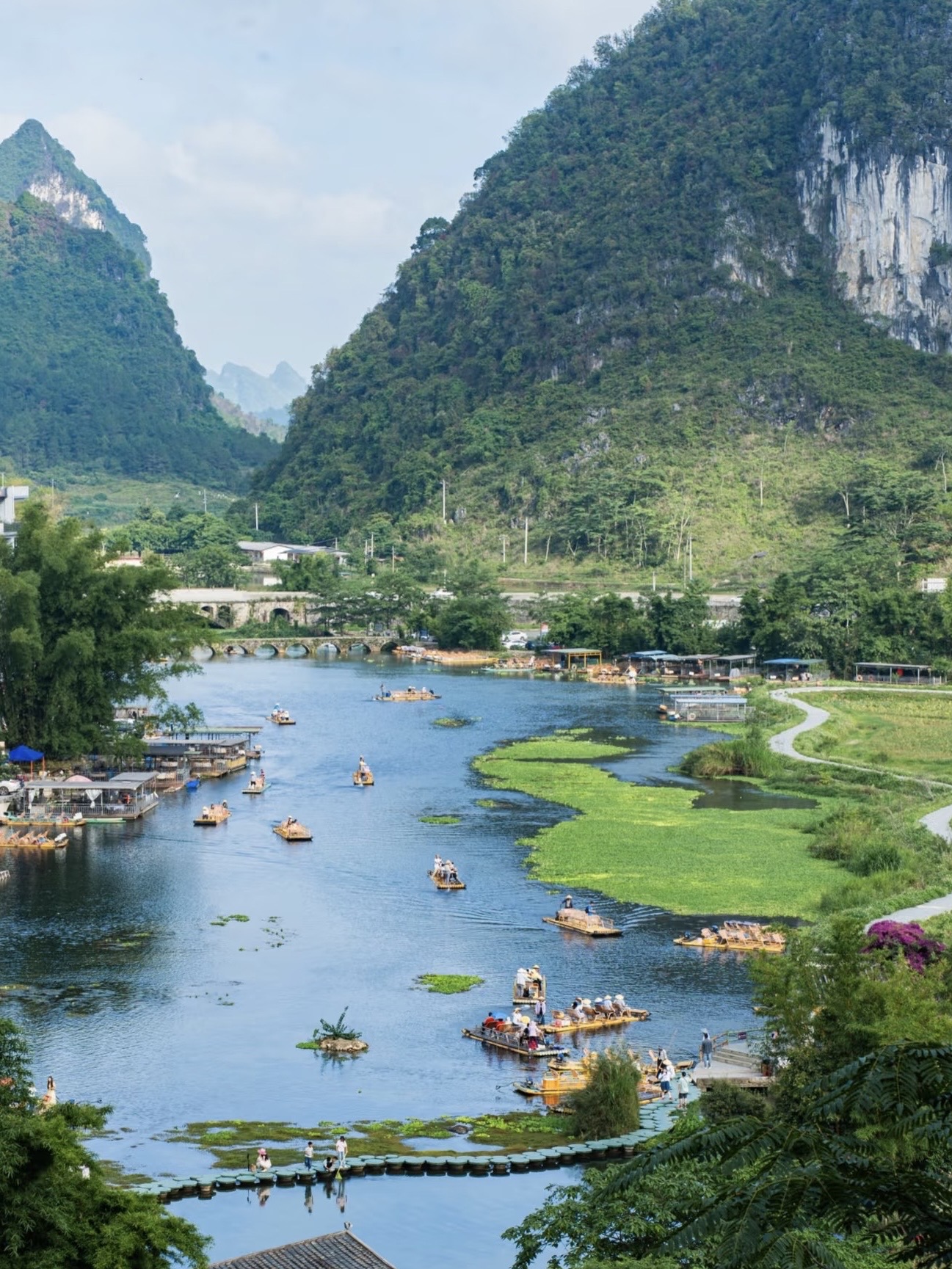
Jingting Mountain.
Local Cuisine and Accommodation Nearby
Jingting Mountain offers not only breathtaking views and a rich cultural history but also a delightful culinary scene and varied accommodations to enhance your visit. Whether you’re craving authentic Huizhou flavors or seeking a cozy place to rest, you’ll find plenty of options nearby.
Culinary Delights
-
Stinky Mandarin Fish (臭豆腐)
This unique dish might have a pungent aroma, but don’t let that fool you. The tender fish is packed with flavor and is a must-try when visiting Xuancheng. Head to Huijude Restaurant to savor this local specialty, where authentic recipes bring the dish to life. -
Mao Tofu (毛豆腐)
For the adventurous eater, Mao Tofu offers a fascinating culinary experience. This fermented tofu dish is a cornerstone of Huizhou cuisine, celebrated for its distinct taste and texture. Try it at one of the local eateries after a day of hiking. -
Shuiyang Three Treasures
This delectable trio comprises duck feet, duck gizzards, and duck tongue, served alongside rice wine. It’s a savory treat that embodies the region’s rich gastronomic heritage. Look for it in traditional tea houses around Jingting Mountain. -
Green Snow Tea (绿雪茶)
After your climb, relax at the Guzhaoting Tea House where you can sip on the local Jingting Green Snow Tea. This refreshing brew, surrounded by bamboo forests, offers a perfect end to your outdoor adventures.
Places to Stay
-
Zhaji Artists’ Club
Nestled in the picturesque Zhaji Ancient Town, this charming accommodation provides an immersive experience in Huizhou-style architecture with views of serene waterways. It’s perfect for travelers who appreciate art and history. -
White Magnolia Hotel
For those preferring modern amenities, the White Magnolia Hotel in downtown Xuancheng is an excellent choice. With its convenient location near Jingting Mountain and comfortable rooms, it’s ideal for both relaxation and exploration. -
Poetic Landscape Hotel
If you’re looking for a touch of luxury, consider the Poetic Landscape Hotel located by the river in Taohuatan. Enjoy stunning views from your room’s balcony and unwind in a private hot spring after a day of hiking. -
Guzhaoting Guesthouse
Located close to the mountain, this guesthouse is a cozy option for travelers who want to be near nature. Offering traditional decor and a warm atmosphere, it’s a great spot to rest after a day of adventures.
Exploring the Local Scene
The area surrounding Jingting Mountain is rich with cultural and culinary experiences. As you embark on your journey through this poetic landscape, be sure to indulge in the local cuisine and relax in the welcoming accommodations that will make your stay truly memorable. Whether you’re climbing the mountain or enjoying a peaceful tea ceremony, Xuancheng promises a delightful escape into China’s enchanting heritage.
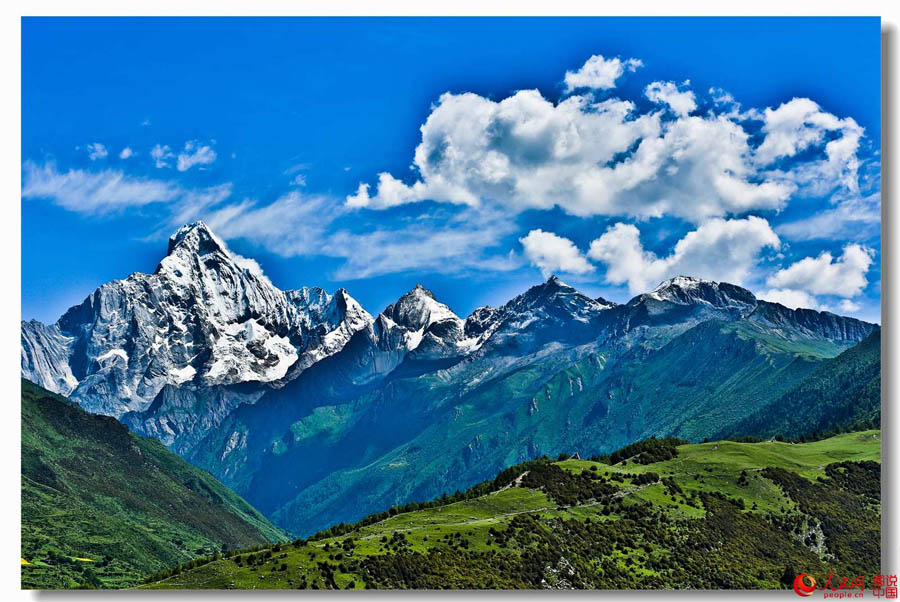
Jingting Mountain.
Frequently Asked Questions
Frequently Asked Questions about Jingting Mountain
1. Where is Jingting Mountain located?
Jingting Mountain is situated about 5 kilometers north of Xuancheng City in Anhui Province, China. It is easily accessible by bus, with stops near the East Gate Square.
2. What are the main attractions at Jingting Mountain?
The mountain is famous for its stunning scenery, historical significance, and cultural heritage. Key highlights include the Taibai Duzuo Tower, Huanggu Spring, and the ancient Zhaoting Archway. Visitors can also explore tea gardens, bamboo forests, and enjoy panoramic views from the summit.
3. How long does it take to hike Jingting Mountain?
A typical visit can take around 3 to 4 hours. The hike to the Taibai Duzuo Tower usually takes about 30 to 50 minutes, while reaching the main peak may take an additional hour.
4. What is the best time to visit Jingting Mountain?
For a quieter experience, visiting on a weekday or during the winter months is recommended. If you want to enjoy spectacular scenery, consider going in March or April when wildflowers bloom, or in autumn for colorful foliage.
5. Are there any dining options available near Jingting Mountain?
Yes, there are cafes and teahouses, such as the Guzhaoting Tea House, where you can enjoy local dishes and Jingting Green Snow Tea. It’s a great way to relax and savor the mountain atmosphere after your hike.
6. Is Jingting Mountain suitable for families?
Absolutely! Jingting Mountain is considered family-friendly, with various trails suitable for different fitness levels. The scenic views and cultural sites make it an enjoyable outing for all ages.
7. What should I bring when hiking Jingting Mountain?
It’s advisable to wear comfortable shoes for hiking, bring water to stay hydrated, and possibly a light jacket depending on the season. Don’t forget your camera to capture the breathtaking views!
8. How do I get to Jingting Mountain from Xuancheng City?
You can take a local bus from Xuancheng City to Jingting Mountain. Taxis are also available for a more direct route. The mountain is well-marked, making navigation easy for travelers.
Final Thoughts on Your Trip
As you prepare to leave Jingting Mountain, take a moment to reflect on the serene beauty and rich cultural tapestry that this enchanting destination offers. With its lush bamboo forests, sweeping tea gardens, and the haunting echoes of Li Bai’s poetry whispering through the air, every step you took along the trails has likely woven a unique story into the fabric of your journey.
Whether you ascended to the panoramic vistas from the Taibai Duzuo Tower or meandered through the tranquil pathways lined with ancient trees, Jingting Mountain invites you to embrace the art of slow travel. Relish the peacefulness found among the scenic peaks, and allow the gentle breeze to carry away the noise of everyday life.
For the adventurous, winter’s quiet snow-covered landscapes offer a captivating alternative, while the vibrant greens of spring breathe life into your exploration. As you sip on a cup of Jingting Green Snow Tea at a charming teahouse, let the flavors of your surroundings linger in your memory, reminding you of the laughter and stories shared with fellow travelers and locals.
No matter your chosen path, Jingting Mountain is more than just a destination; it’s a journey into the heart of Chinese literary history and natural beauty. As you venture back to your routine, carry with you the spirit of this poetic haven, and perhaps, in a quiet moment, you too may find inspiration in its timeless allure. Safe travels, and may the echoes of Jingting Mountain resonate in your heart long after you leave.